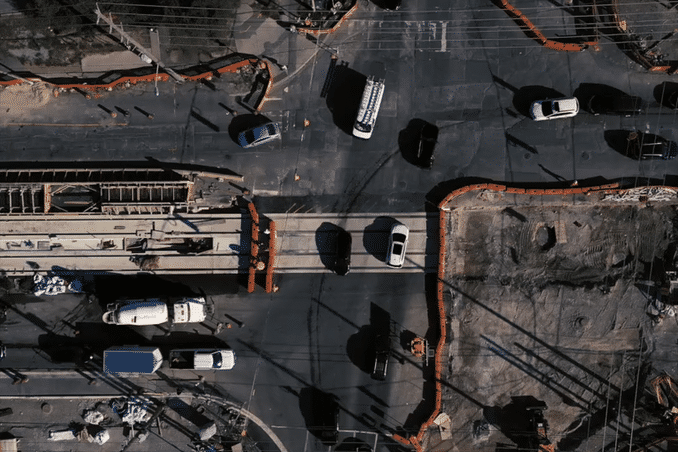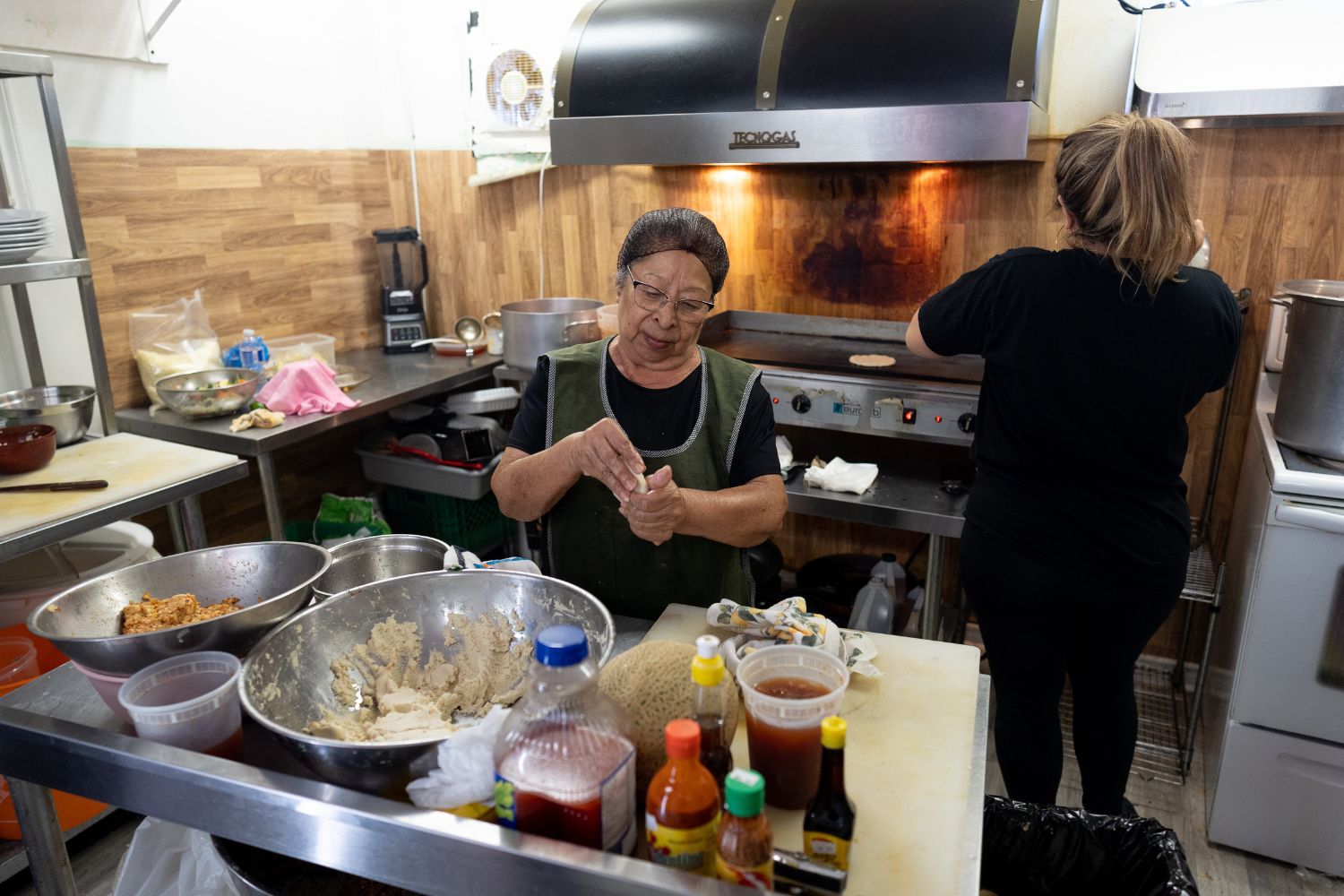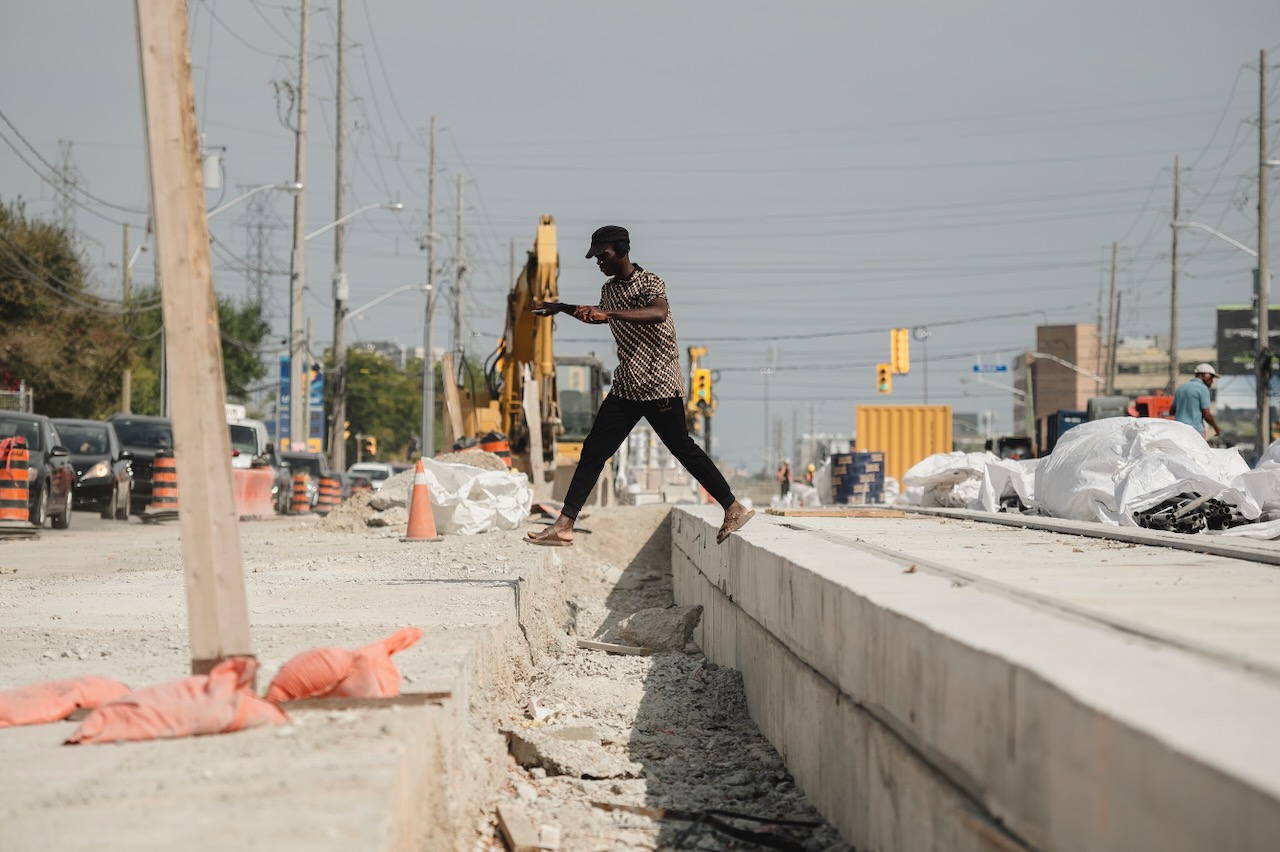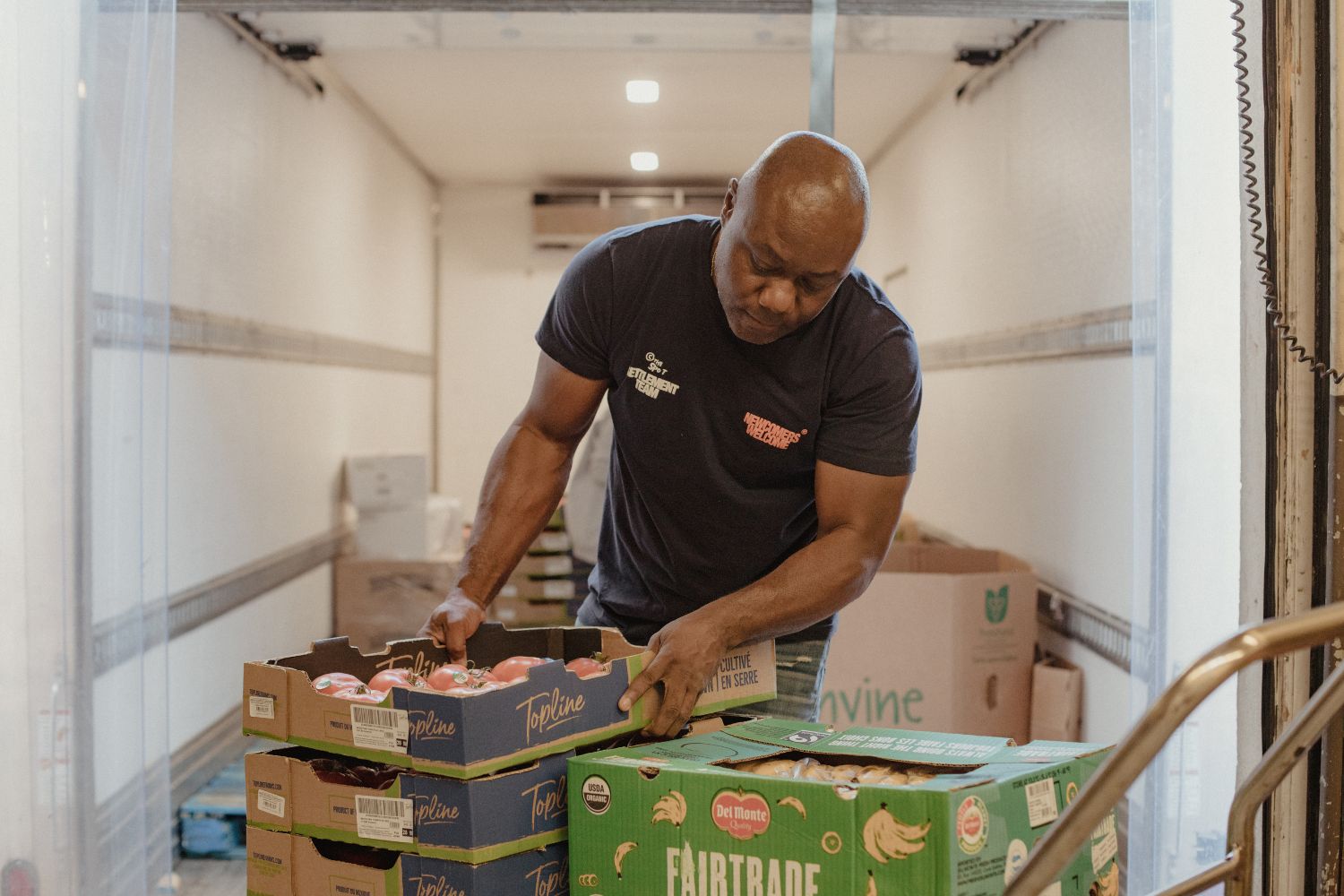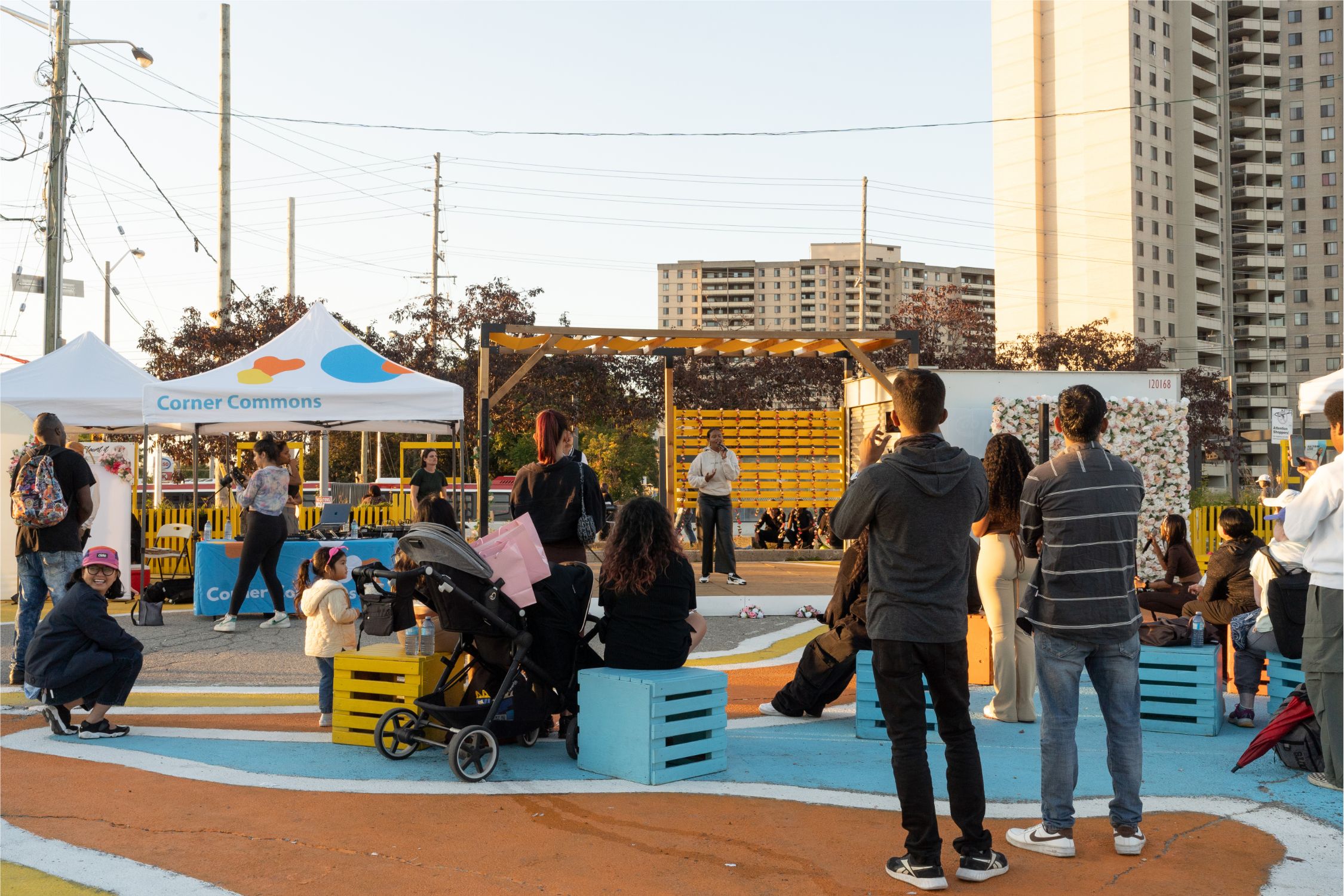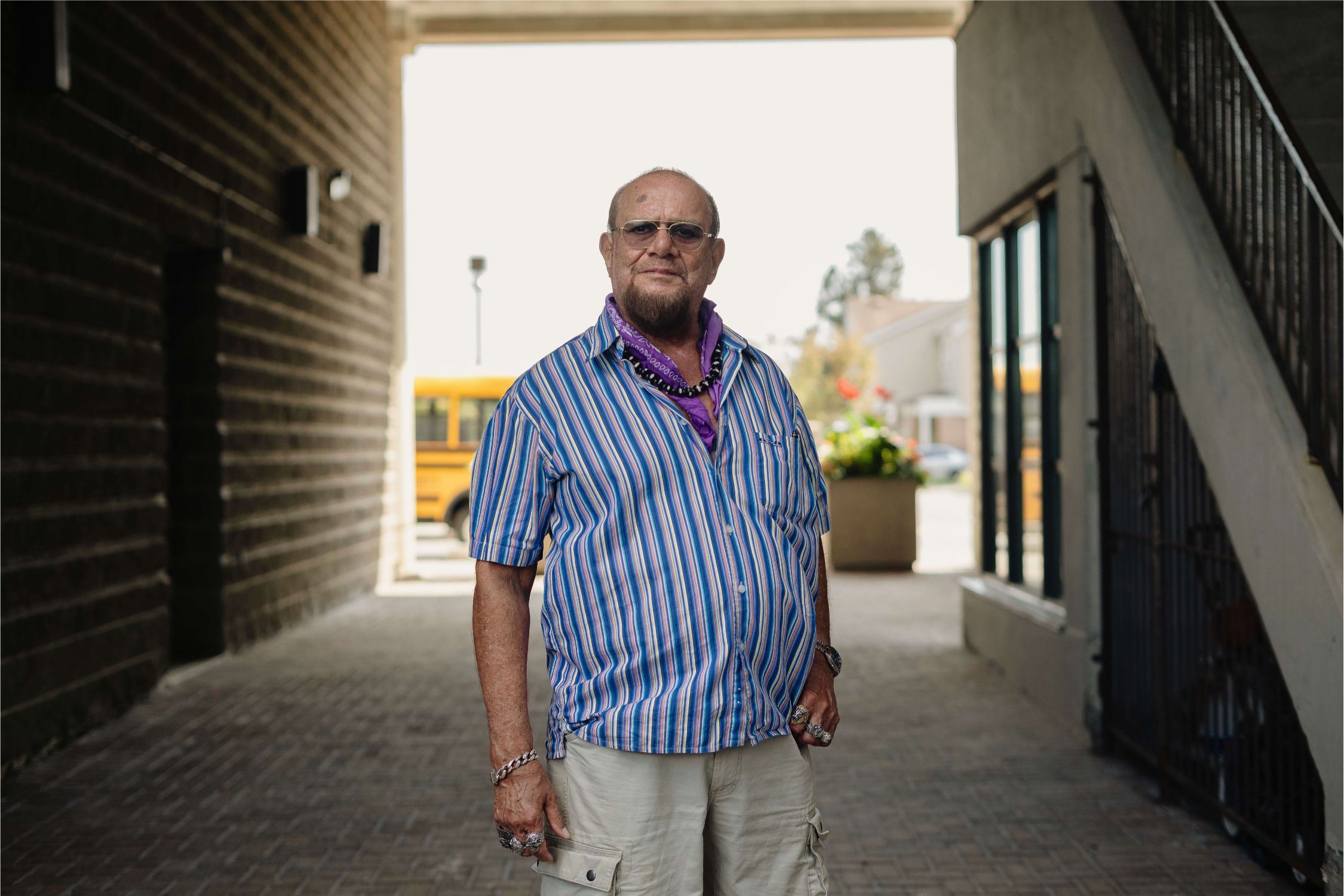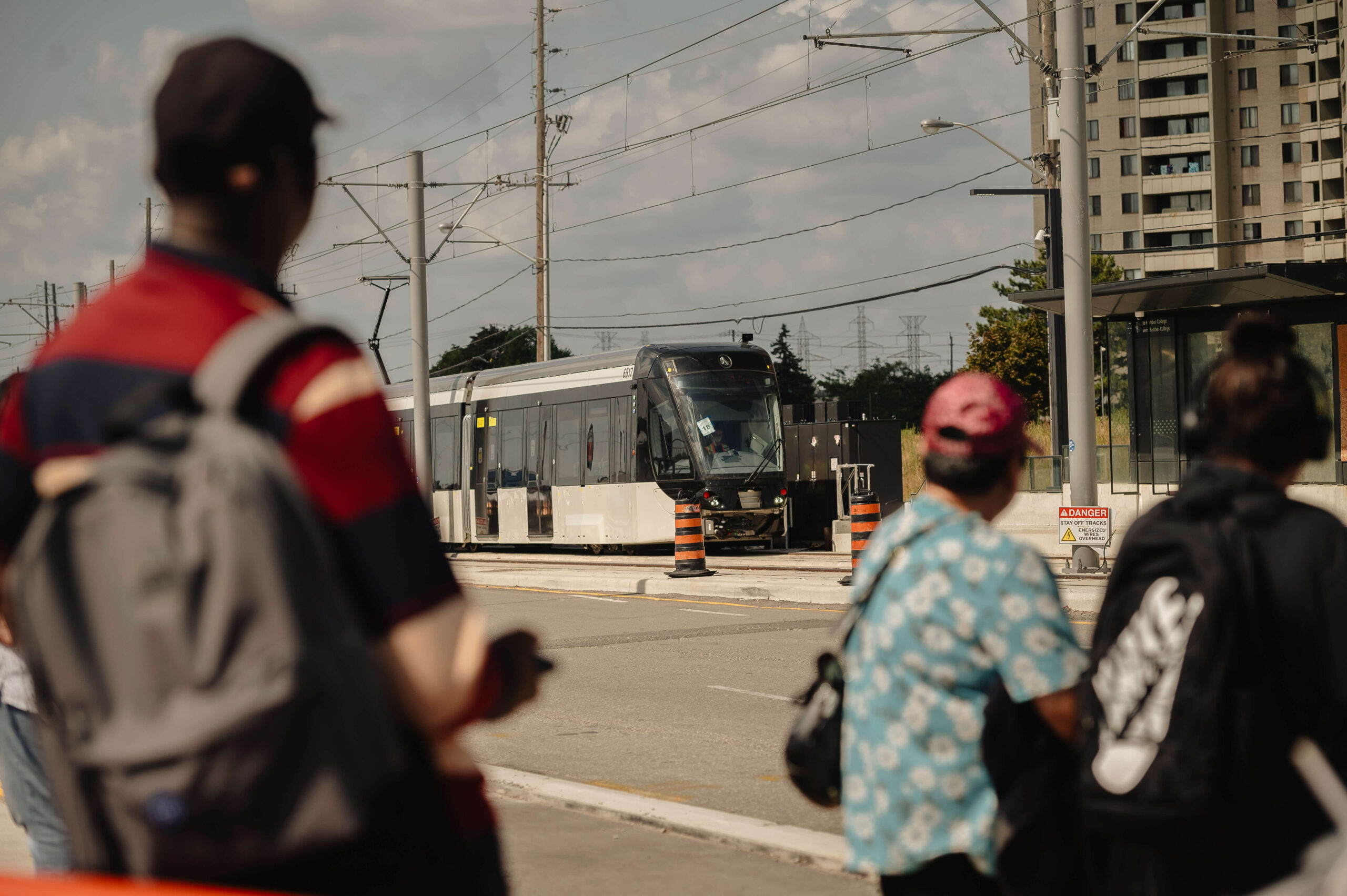
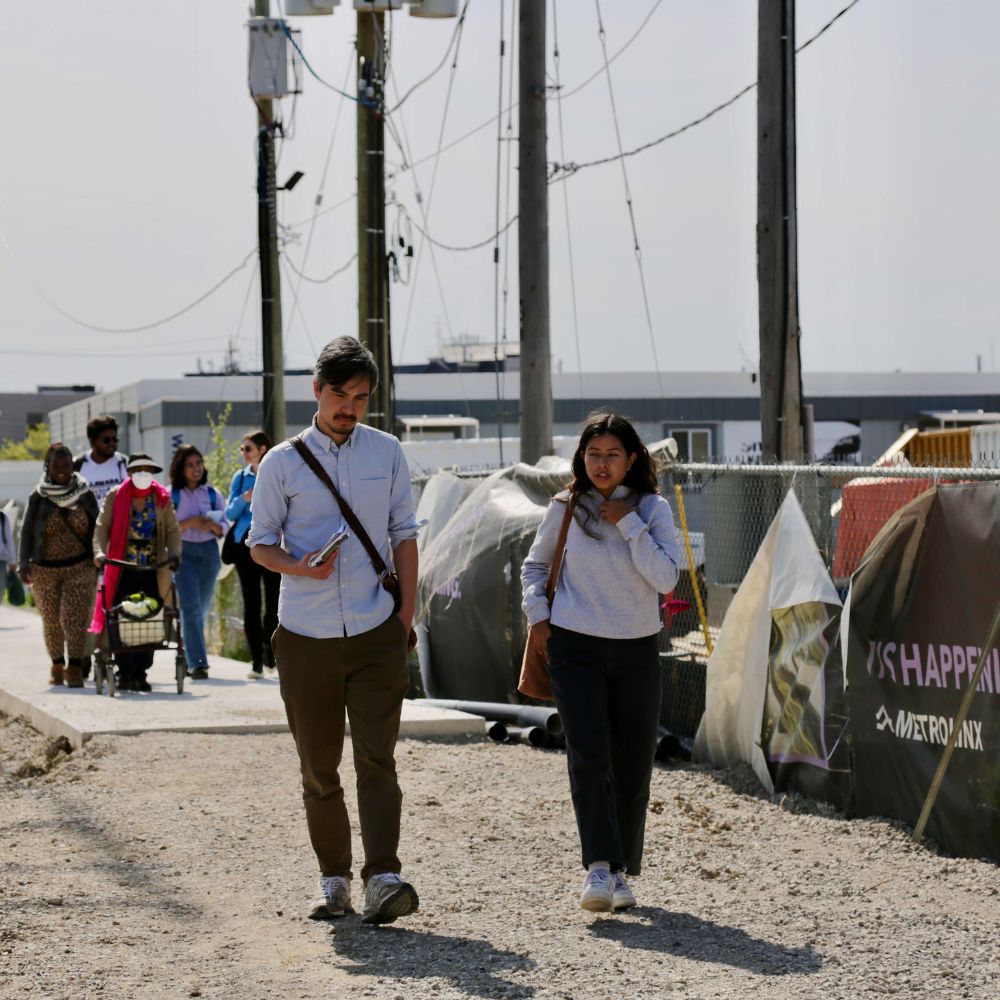
On an afternoon in May, Maize Blanchard gingerly picked her away across Finch Avenue West, pushing her walker through the loose gravel that had replaced the sidewalk in the construction zone that was her neighbourhood.
Blanchard—masked and regal, a fuchsia scarf tossed over her shoulders—had a busy weekend planned. She had a demonstration to organize at her apartment, for one. The building had recently been bought by the global real estate investment firm Starlight and since then, Blanchard said, they’d neglected basic interior repairs while raising rents. “Nothing has been done inside,” she said, appalled. Despite the busy schedule, she was taking the time that afternoon, along with a group of other local residents, to show Local journalists the neighbourhood, talk to us about the changes that were afoot, and help us understand the Finch West LRT and everything that comes with it.
Blanchard’s apartment situation and the unnavigable sidewalks, it turned out, weren’t unrelated. The LRT won’t start running until at least 2024, but changes to the neighbourhood have already arrived. One of these is higher rents, with apartment towers changing hands and big players like Starlight entering the neighbourhood in anticipation of the new, wealthier demographic the transit line could attract.
Those massive changes haven’t been well enough understood outside of northwest Toronto. The Finch West LRT—the endlessly delayed transit line stretching from Finch West station west to Humber College—is the “quiet middle child of Metrolinx’s Toronto developments, ignored in favour of the bigger, more expensive projects closer to the downtown core,” writes Inori Roy in her comprehensive feature on the project. “But to locals in a part of the city with no rapid transit to speak of (not even, inexplicably, an express bus), a project of this scale can’t help but feel personal.”
That visit, back in May, was one of multiple story-finding trips we took to communities along Finch West over the course of the summer. It was part of a process that’s unusual in journalism, but makes sense to us. When we want to write a series of stories about a community, we don’t just assign them from our downtown Toronto office. We visit first, talk to community members, get a better sense of what stories are going untold. And once we assign, we look for journalists who understand the community. For this issue, many of the writers and photographers are from the neighbourhoods they’re documenting.
Join the thousands of Torontonians who've signed up for our free newsletter and get award-winning local journalism delivered to your inbox.
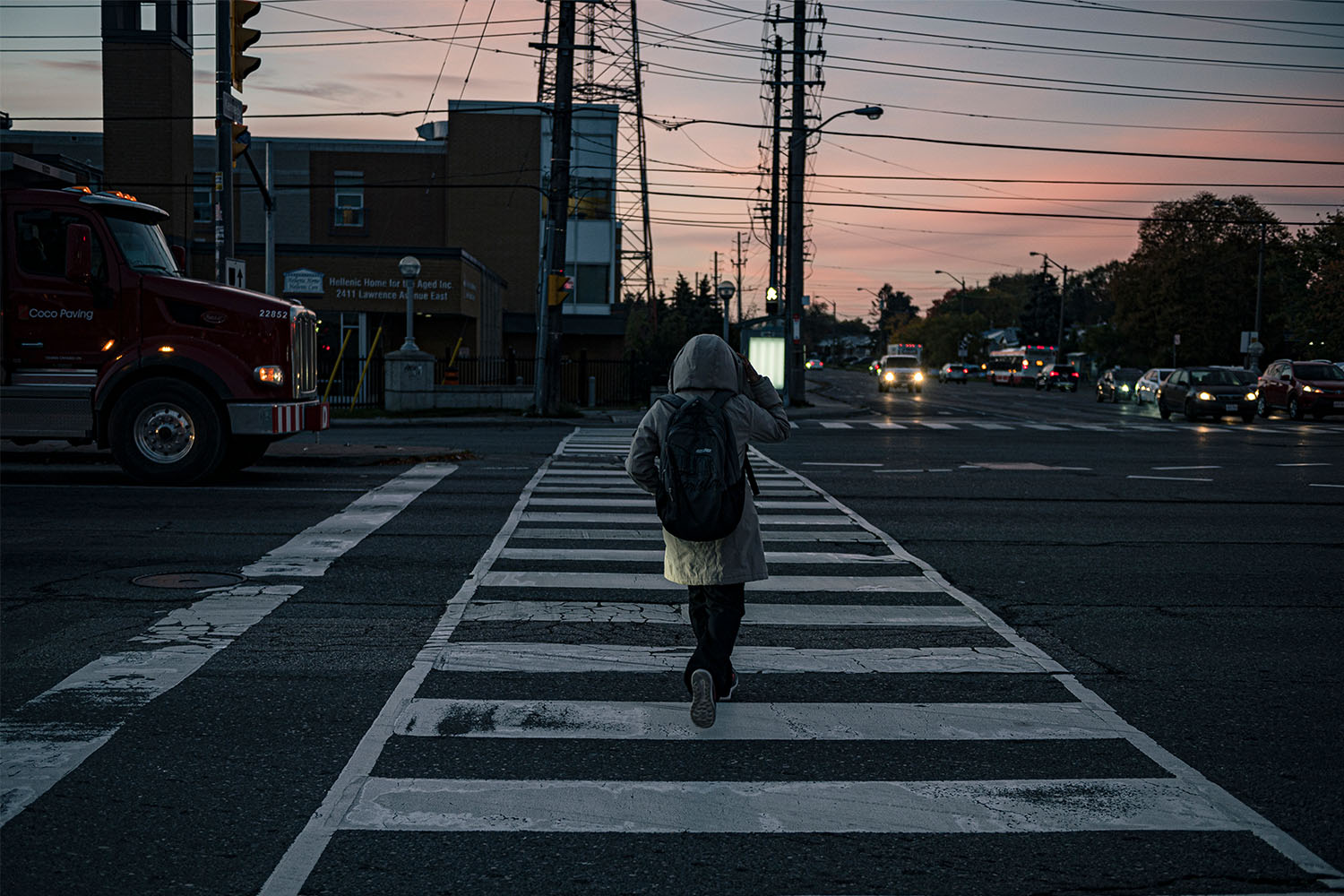
The result is our Finch West issue, launching today and rolling out over the next two weeks, which follows the nascent transit line across the city’s northwest—racialized neighbourhoods of immigrants and low- and middle-income families that have too long felt disconnected from the city, both physically and psychologically.
We take a deep dive into the long history of failed plans in the area and the current fight by residents to ensure that whatever the line brings benefits the people who live there. We zoom in on Metrolinx’s construction practices, tell the story of a 30-year-old Rexdale housing co-op built by union workers that could have lessons for the housing crisis today, eat our way across Jane and Finch, and take a panoramic look at how the reverberations of the pandemic are felt in some of the neighbourhoods that were hit hardest.
Taken as a whole, the stories offer a window into a corner of the city on the eve of a major transformation—one of the biggest stories in Toronto today.
The Finch West Issue is made possible through the generous support of United Way Greater Toronto and Metcalf Foundation. All stories were produced independently by The Local.

